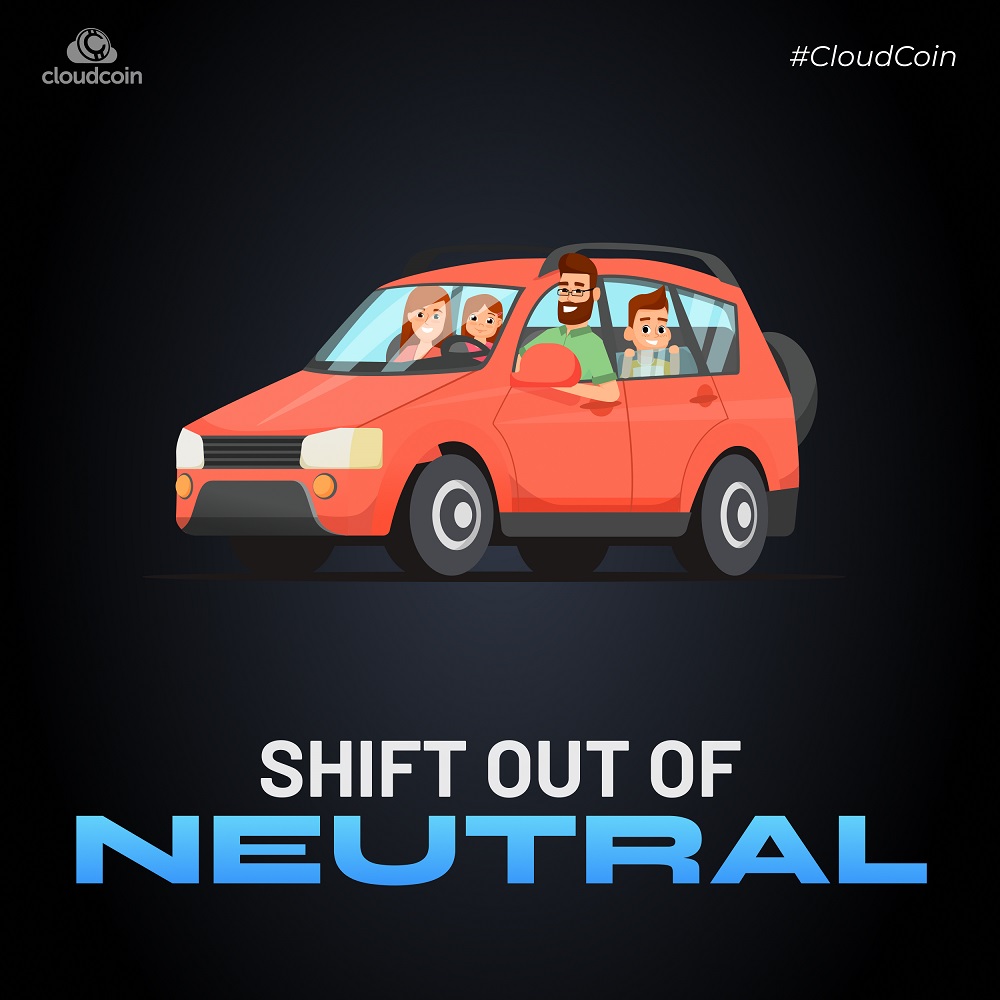
Most cryptocurrencies are stored via wallet, exchange, or use obscene amounts of storage on your personal devices. CloudCoin offers a light, simple authentication code that can be stored in photos, USB drives, or the coin itself. With CloudCoin, authentication codes are not only more secure–but completely anonymous.
What is a crypto wallet?
When you access your physical wallet, at some point you, yourself, are putting cash in. You are able to physically view that cash, monitor and safeguard its security, and spend it as you will at any time. The idea behind a crypto wallet is to work much the same way. It is a software-based platform ostensibly designed to make your cryptocurrency more accessible to you. The goal is to give you the ability to store your crypto electronically and send and/or receive your crypto in much the same way as a physical wallet. What you put in, you should be able to just as easily take out. Or at least…that’s the idea.

But the devil is in the details.
Blockchain-based crypto wallets cannot be anything but pseudo-anonymous.
Unlike the cash in your physical wallet, which only you see and engage with, blockchain-based crypto wallets involve third-party accountability that requires surrendering a certain amount of privacy. Crypto wallets are the electronic platforms that most often require that you purchase software or pay per-transaction fees to use. Unlike your personal wallet, however, crypto wallets work less like a storage space and more like a record of transactions. That is to say, they are “pseudo anonymous”: they must not only track and record transactions, but also associate you with those transactions. You pay to use them, yet you are not afforded complete privacy. Using them can mean surrendering a certain degree of anonymity, and it’s a reality that few consider.
In fact, “crypto wallets need to locate the crypto associated with your address in the blockchain, which is why they must interact with it. In fact, crypto wallets are less wallets than they are ledgers: They function as an owner’s identity and account on a blockchain network and provide access to transaction history.” (Tulsa) Crypto wallets are very much like a bank account, which, as we’ve pointed out in the past, records every transaction; even if those transactions are in cash.
And it gets worse. Certain protections afforded to banks, which many believe is an acceptable compromise in matters of privacy, are not available in crypto wallets–despite working much the same way. “Cryptocurrency exchanges are not backed by protections like the Federal Deposit Insurance Corp. (FDIC), and they’re at risk of theft or hacking. You could even lose your crypto if you forget or lose the codes to access your account, as millions of dollars of Bitcoin already has been. That’s why it’s so important to have a secure storage place for your cryptocurrencies,” and “if you’re buying cryptocurrency via a broker, you may have little to no choice in how your cryptocurrency is stored.” (Forbes)

Do you need a wallet in order to store your cryptocurrency?
Not necessarily. You could store your crypto on personal devices. With CloudCoin, this is fast, easy and secure. However, with blockchain technology–which requires long and complex blocks of unwieldy code–the process requires an exorbitant amount of time, memory and storage space. Transactions and authentications can thus be very slow and cumbersome.
Another issue to consider is the fact that your personal devices can be hacked. If a hacker gains access to your laptop, for example, they could gain access to your wallet or codes. If you decide to store your crypto on external storage devices, you run the risk of losing those authentication codes, thus losing access to your currency. If the device becomes damaged, lost, or stolen–you lose all your currency with no way to retrieve it.
With CloudCoin, that simply doesn’t happen.
What About Public Exchanges?
You can also use public exchanges such as Robinhood to trade or transfer your crypto–but be mindful that these are still ledgers which offer users limited anonymity. Even if you bypass a crypto wallet and leave your money on the exchange, the exchange must account for it. The problem gets more complex in the lack of privacy where your transactions are concerned. How your money moves is the thing: it can matter whether or not you are using what is referenced as a “hot” (online) or “cold” (offline) wallet. This movement can limit your options.
“When you buy cryptocurrency, it’s typically stored in a so-called crypto wallet attached to the exchange. If you don’t like the provider you’re exchange partners with or you want to move it to a more secure location, you might transfer it off of the exchange to a separate hot or cold wallet. Depending on the exchange and the size of your transfer, you may have to pay a small fee to do this.” (Forbes) And those transactions, of course, must be accounted for.
There’s always a catch, isn’t there?
How Much Protection can an Exchange Offer?
Exchanges are as highly susceptible to hacking and theft as online banking, except there’s even less protection for your currency. “High volume coins such as Bitcoin and Ethereum can get stuck on the blockchain before being deposited into an individual’s account. Bitfinex has had numerous incidents of trades getting botched or unprocessed. Exchanges also have necessary but cumbersome authentication protocols that can lead to jams and lockouts. Binance has a regular issue with Google Authenticator (2FA) which has left traders unable to log in to their accounts. But the most concerning issue with cryptocurrency exchanges is the possibility of a platform losing all of your coins by becoming insolvent or getting hacked.” (Daily Hodl)
Pretty frightening, right? But here’s the good news: it doesn’t have to be.
CloudCoin: Confidential, Efficient, and Quantum-Safe With CloudCoin, you’re not required to use public exchanges. CloudCoin offers Skywallet, a crypto wallet that does not require software purchases. CloudCoin is the most efficient cryptocurrency in the world and there are absolutely no fees associated with trades. All you need is an internet connection–and you don’t need to use Skywallet if you choose not to. CloudCoin crypto uses RAIDAtechnology: which means it operates off the blockchain. Because of this, your CloudCoins can be stored quickly and easily: in simple files or external devices–even via email. Its protocols are quantum safe, reliable, and easy.
Recoverability

With CloudCoin, if the devices or files that you use to store your crypto should get lost or damaged, you can still retrieve your currency. CloudCoin is the only currency that can be recovered if lost. Because it authenticates the coin, not the user, it is completely anonymous and immune to hackers and counterfeiting. It’s far more secure–and much safer–than other cryptocurrencies.
CloudCoin is cryptocurrency that is light, energy efficient, and extremely easy to use. It is highly accessible, and cannot be tampered with or destroyed.
Safety. Versatility. Privacy.
When it comes to crypto wallets, not all are created equally. As new technology and services attempt to better accommodate the increasingly disillusioned blockchain community, it’s good to know that there exists among us a crypto that doesn’t require the patches, fixes, and surrender of privacy that blockchain technology demands. CloudCoin and Skywallet provide that extra layer of protection without steep learning curves and the inevitable pitfalls of blockchain technology and its relevant platforms. It begins with the premise that transferability and ease of use should be as free from the pitfalls of central banking as the cash in your wallet. This is why, in the greater scheme of things, CloudCoin has emerged as the more perfect money. Article published courtesy of https://cloudcoin.global

